A businessman who built a towering second home in his garden has been ordered to tear it down – after it emerged he had only secured planning permission to build a modest garage.
Raziq Ali was given the green light to replace a modest garage to the side of his £350,000 detached home near Bradford, West Yorkshire.
Instead, the 41-year-old constructed what planning officials have described as a full-blown ‘detached dwelling’ with three floors and enough space for independent living.
Bradford Council issued an enforcement notice in March, demanding Ali demolish the 85 sq/m structure within three months, after ruling that the illegal development completely ‘dominates’ the area.
Yet when MailOnline visited the property, in a secluded avenue in the village of Thornton, building work was still taking place inside the annexe, which neighbours said had been kitted out with high-end furniture.
A glazed corridor had also been constructed to link the two buildings together.
Mr Ali, the director of a franchise of a chai tea shops, is said not to have lived at the property since purchasing it for £299,000 in 2021.
Speaking over the phone, he claimed to have been led astray by builders who told him not to worry about planning permission.
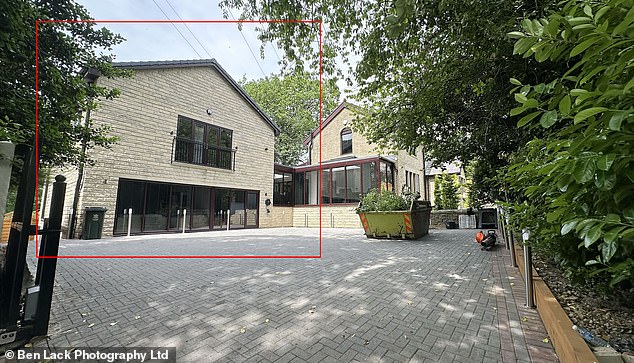
Raziq Ali, 41, constructed this full-blown ‘detached dwelling’ with three floors and enough space for independent living
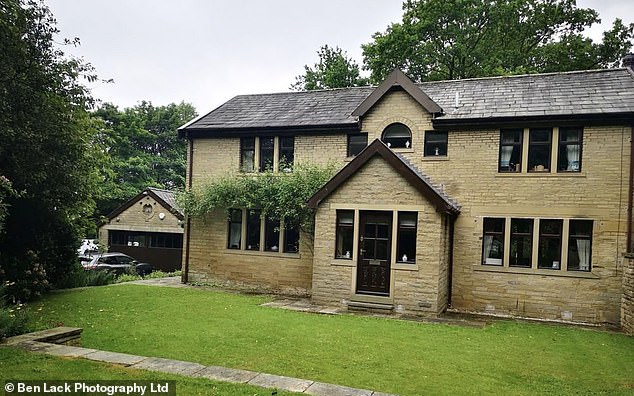
Pictured: The front of the property in Bradford with the extension to the left
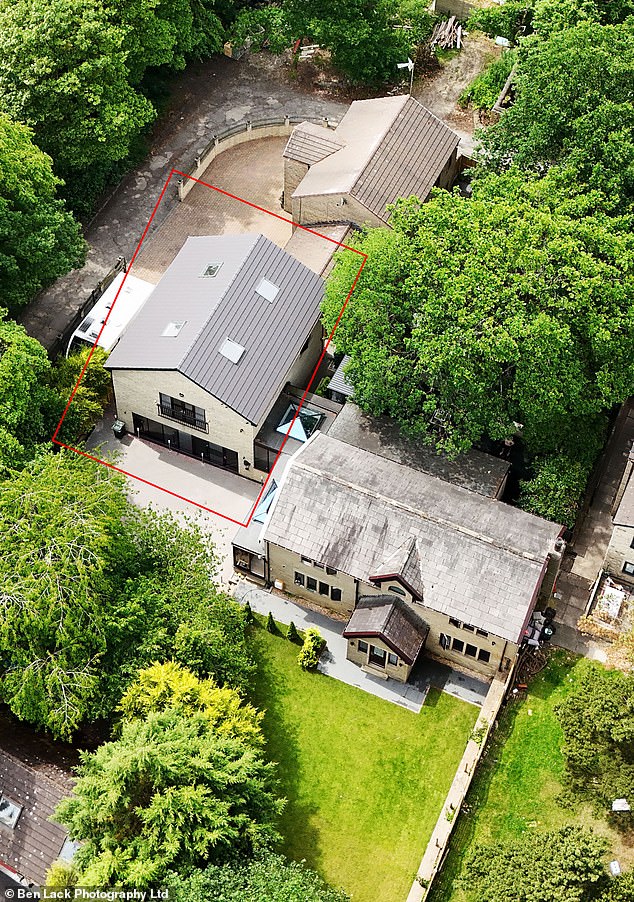
Aerial photo shows the extension that was built after the homeowner gained planning permission for a garage
He said: ‘We’re going to appeal. It was my builder who was doing the application for me. It was my first time building something.
‘He said ‘no problem’, ‘I’ll put the planning in for you, there will be no problem’.
‘It was my first time doing anything so I left it to the builders. He said he would get all the paperwork in and would do everything.
‘It was the builders who pulled me in that direction and said “don’t worry about it”.
In 2022, Mr Ali was granted permission to demolish the existing garage adjacent to his three-bed home, after purchasing it the previous year for £299,000.
In its place, council officials signed off on plans to build a larger ‘garage/store’ with a room in the loft, with the caveat that ‘it is suitably designed and not detrimental to the amenity of existing nearby residents’.
The council ruled that what has been built in its place is vastly larger and taller and goes far beyond the permissions Mr Ali was granted.
A report refusing retrospective planning consent ruled: ‘Having received planning permission for a replacement garage, the applicant has instead construct what is, in effect, a detached dwelling in the front of the house with not planning permission and persistently tried to retain the unauthorised building’.
Mr Ali unsuccessfully applied three times for retrospective planning in a bid to make the costly development legal.
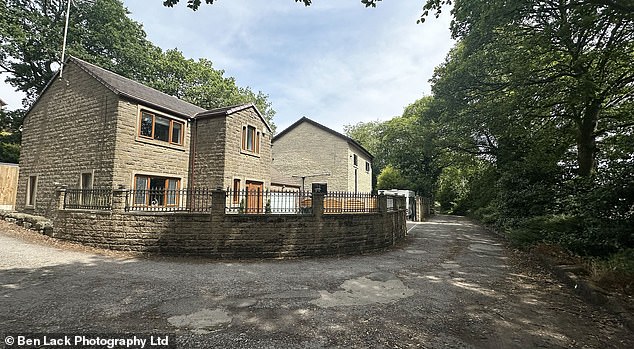
Mr Ali was given the green light to replace a modest garage to the side of his £350,000 detached home near Bradford, West Yorkshire
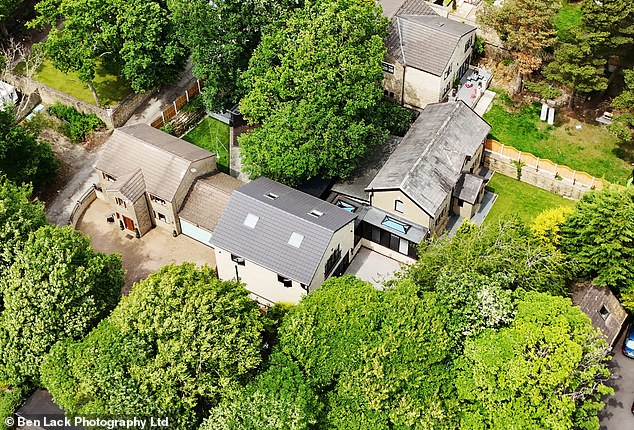
The three story extension (centre) at the property in Bradford, West Yorkshire
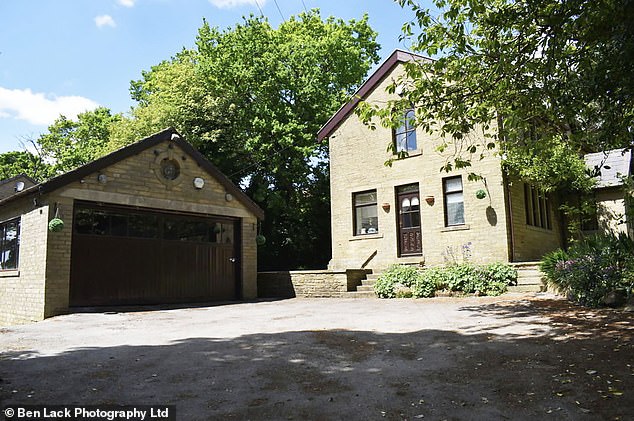
In 2022, Mr Ali was granted permission to demolish the existing garage adjacent to his three-bed home, after purchasing it the previous year for £299,000
In an application in 2023, he claimed the building was justified as his father had become disabled and that the structure would allow his parent to live in close proximity and ‘receive the care he needs’.
A later planning bid suggested the building would be used by care providers to stay over and provide assistance was also refused by planners who ruled that the ‘size, design and appearance of the built annex is not appropriate or acceptable’.
The council said that the garage conversion it had initially approved would have provided ‘adequate additional space’.
In May last year, the council issued an enforcement notice demanding the ‘unauthorised three-storey building’ be removed in three months. An appeal of that decision was dismissed in March by the Planning Inspectorate.
Laura Renauden, an inspector appointed by the secretary of state, concluded in her report: ‘Permission was obtained for a replacement garage building on the site, but the building constructed is somewhat larger than that permitted, and is said to have self-contained facilities.
‘The council’s design concerns are that it does not respond appropriately to its context, and that it does not achieve a relationship of subservience to the principal dwelling on the site.
‘The three-storey element is a substantial addition, sited towards the front of the plot and rather overwhelming its surroundings.’
Ms Renauden said she had been provided with 70 pages of medical records of an ‘elderly relative’ but said the documents lacked ‘clarity’.
She added: ‘What exactly the medical issues are, the likely longevity of these, and any resulting need for or benefits from a residential annexe that might justify the permanent provision of the three-storey appeal structure are not explained.
‘It is possible in some cases for the personal circumstances of an appellant to overcome a conflict with the development plan for the area, but those circumstances, and the consequential need for the particular development in issue, would require a clear explanation and justification.
‘Those have not been supplied here.’
In Sowden Grange, a small cluster of detached homes, neighbours claimed Mr Ali did not live at the property and that builders continued to work inside the illegally-built house.
One suggested Mr Ali had spent more than £200,000 to build the structure, and now faces a costly demolition bill to raze to the ground.
Another couple, who asked not to be named, said: ‘To be honest, at this point, we just want the matter resolved.
‘We’d prefer to have actual neighbours living there. We’re more bothered by the constant building work.
‘The work’s been going on for over two years now. Every time they do anything, our garden ends up covered in dust and debris.
‘If they demolish it, we’ll go through the same disruption all over again.’
When approached by MailOnline, Mr Ali said he had instructed solicitors to contest the council’s enforcement action but declined to comment further.
Breaching an enforcement notice can lead to proceedings in the criminal courts.











